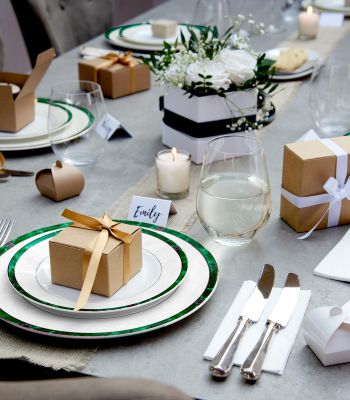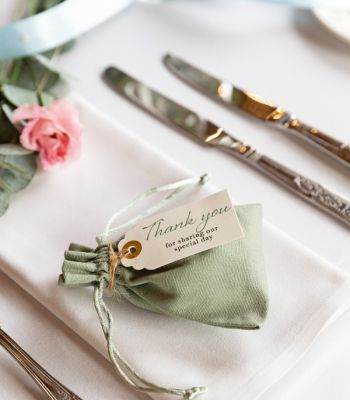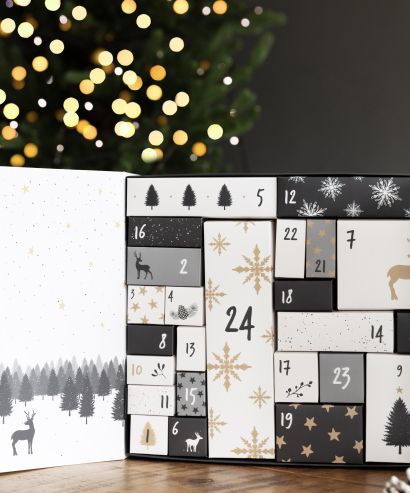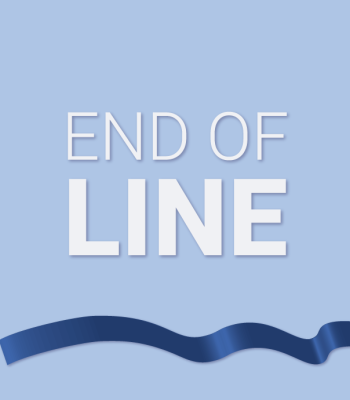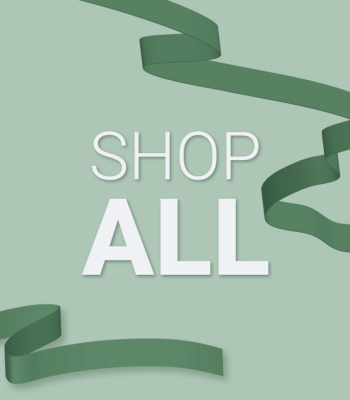
How to live with hustle culture, the good, the bad, and the in-between“Oh how’s your little business going?” Yeah, great, cheers nan… We’ve all been there. Seemingly no matter what industry you’re in, when you’re a small business people just tend not to take you seriously, especially if you started your company at a young age. The judgement and condescension often hits home and can be really damaging to your self esteem, often at times making you doubt everything you’ve worked so hard to achieve. You start off full of enthusiasm about the great idea you had that your mum thought was great, put in gruelling hours of hard work, went over accounts and product design, researched the most minute detail of every single SKU, found some amazing packaging to make you stand out and started booking fairs to bring your business to life. Things are going great and you’ve started making a bit of money (though not enough to quit your “actual” job). A little while goes by and you’re ticking over, more long hours of development, replying to emails and soon enough it comes to the next dreaded family barbecue, shortly followed by that one devastating blow, “Little business”. It’s times like these where a lot of our fears are internalised, intrusive thoughts take over and we start to spiral out of control, and that has a knock-on effect into the rest of our lives. I don’t think for a second anyone who asked how my business was doing (whether they said “little” or not) meant to offend me, but none of them had been entrepreneurs before so they weren’t ever going to understand how condescending it was to be spoken to like that.
What is hustle culture?Getting people to take your business seriously and give you the respect you deserve can feel like a massive struggle, especially if your business is in its infancy, and even more so if you're a young person. People tend to feel like new businesses started by young people are just hobbies and a product of "hustle culture". Hustle culture is the idea that all of your time should be monetised, and is often promoted by the more successful members of younger generations. The idea stems from the notion that success, often measured these days in a monetary or situational sense, is the driving force for society and those who work the hardest succeed faster, and reach greater heights than their more well-balanced counterparts. Hustle culture is probably responsible for the rise and fall of more small businesses than any capital-based ideology because we're told to always be grinding, if you have a hobby how can you monetise it? What skills do you have outside of regular employment could you use to boost your financial and social position? The problem with hustle culture is that you become an always-on thinker. You're constantly thinking about work and business, whether it's creating a new line of products or thinking up marketing strategies. Being an entrepreneur means sacrificing almost all of your spare time and makes finding a healthy work-life balance almost impossible and, take it from me, this takes a massive toll on your mental and physical health. I'm certainly not suggesting that we all pack up shop and leave all the business stuff to the big players, but it does mean that we have to be careful in the way we run our businesses both for our benefit and that of our business. If you go into business with the idea of making money straight out of the gate, you're probably going to fail. This is the sad reality for many young people. An idea is formed and without the proper preparation and forethought, we dive in head first and before long can't keep our heads above water.
But Tom, what does this have to do with feeling judged?Good question, bold group of pixels. Hustle Culture is a bit of a hot topic at the moment because it's been around long enough for people to start seeing the cracks. It's not new information that businesses fail more often than not, but the rise in Hustle Culture has also given rise (and fall) to more businesses than ever, meaning that there's a good chance that someone you know has had a business that failed, and so to prove yourself you have to stick around. This puts a huge amount of stress on you, your mental health, emotional health, your personal relationships and before long you're finding yourself being judged for not spending time with loved ones, but if you spend too much time with friends you're being judged for not being successful, or maybe you get judged for not doing enough self care. The everyday life of an entrepreneur is one big balancing act where everyone around you "only wants the best for you". It puts you in a position where unless you're going to work harder than anybody else you're going to fail, which can make you feel guilty for spending any time on yourself. Of course you should put in the hard work but as human beings we need to practise self care otherwise our mental health ends up in decline, which isn't good for anyone, is it? Instead of being a slave to the hustle, or constantly being "on the grind", remember that you're in business not because you want to have money, but because of what you think money can get you. It's not going to buy you happiness, so take the time to remember to care for yourself on the way up because it's going to be a struggle. Working long hours every day takes a huge toll on your mental health so remember to take breaks. The good news is that these days the outliers are being tolerated, even celebrated, more than ever. I spoke to some friends who also own their own businesses to see what they had to say about their businesses' first steps, and what it was like being judged:
First, baker friend Becky:“When I first started planning my cake business, I felt as if there were many people out there that were better at what I was doing, why would they buy from me over others?”Especially because I'm self taught. My friends and family were my biggest cheerleaders and my harshest critics all in one. Then, when I finally launched my business I felt like an imposter which is why I never charged enough, so instead of a business it became a way to feed my hobby, a way to feed my creative side. For the first few months I was always on edge, waiting to hear a complaint or that someone got ill due to an allergy. It was always great to receive amazing feedback, but it still didn’t make the doubts go away. “Despite amazing feedback I always felt judged, usually on things like price”This was always a massive thing in the area I worked in. Because I use free range products and I didn't buy in bulk, this made the end price more expensive. Plus my time and utilities, I would always get the comment "Oh, but Tesco has it for £10". At first I would take this as criticism, but as time went on I stood up for myself, stopped making excuses and just said that mine is personalised and is of better quality. I still struggle with being my worst critic, I always look at what needs to be improved not focus on the good points, so the best advice I could give is to be kind to yourself. Nothing happens overnight, and that it's a journey so learn to accept the highs and lows and to celebrate the small wins.
Photo friend Scott said:"I was on furlough at my last job and a friend of a friend was looking for someone to do some photography for them, so I did a little bit of work for them in the evenings during lockdown."When I was eventually made redundant I thought I’d do some freelance work until I got another job. I’ve just kept doing freelance jobs ever since. Before I first started planning my business it was like oh hang on, I could actually make some money working freelance, I don’t need to just rely on my day job for money, I could actually take things into my own hands. My family were just like "Ah finally, you should have been doing freelance work for a while now, you’re capable of doing it. It’s a good idea to be proactive during the pandemic, and not be completely reliant on a new job". Even after the encouragement from those around me, when I finally launched I felt like a fraud and a chancer. I felt I didn’t have enough experience, or a portfolio of work that was good enough to justify offering my work to people for money. I don't think the people around me quite understood it, they all thought "It’s no different than what you do for your day job as a photographer so why do you have this inferiority complex when it comes to putting yourself forward as your own freelance work?". Luckily, as I do this alongside an almost full time job I didn’t need to rely on freelance work for bills, so I wasn’t as concerned as other people would be when they start a business and struggle to find clients/customers. "After about a year I started to feel comfortable with telling people that I do freelance photography as part of how I earn a living."One of the moments that stick out to me is the first time I didn’t get work because I quoted more than the potential client was willing to pay. I had to resist the urge to lower my quote just to get the work, when it wouldn’t have been worth my time and effort. I've had to learn to accept I’m not going to get work from every opportunity that comes my way, and to value my self worth. I still struggle with putting a value on my time that's representative of my work, and being confident that my work is worth that price. The best bits of advice I could give would be to learn how to be confident in your self worth and how valuable your time is, and learn to enjoy the little things. A beer after a hard days work is always sweeter.
Anonymous artist friend said:“Before I first started planning my business I was really excited for new challenges and exploring different aspects of the business”I felt confident that I could make it work with determination and hard work. I initially didn’t give myself goals to reach as such, I wanted to make it a no pressure ‘side hustle’ where I could explore different creative approaches. I didn’t tell my friends and family initially. Not out of embarrassment or anything, it just didn’t really seem relevant because it was such a natural process, I didn’t really plan on taking it that seriously, so it wasn’t until a little while in that I started telling people. When I finally launched my business I felt even more excited, to see how things panned out and if people would like the work I was producing. When I initially posted on social media I was so excited to get comments and likes, it really boosted my confidence. It's so hard to describe how I felt once the first purchase came in. A range of emotions really, excitement, gratitude and hugely fulfilled. “Once I did start telling my friends and family, it was amazing”They were excited to see me exhibiting and chatting to people about my work, they were so supportive and friends often come and see my work at exhibitions. Within my first few months I felt a real sense of achievement and excitement for what lay ahead. I started to have a clearer picture of the direction I wanted to progress the business and become more confident in how I could achieve my goals. “A year in I felt excited for what lay ahead and looking forward to new challenges”I felt confident to explore adding different product ranges to my current offering. I still struggle with time, particularly at busy times of the year. I try to plan months in advance but there are always last minute changes that mean switching plans or working extra hours than I initially thought. Being able to switch off and take a break is difficult, I don’t always but it’s so important to take time for yourself. The best advice I could give would be to believe in yourself. Trust your decisions and go for it! Make as many plans as you can, take time to plan a social media strategy and set time aside to implement it. It takes time initially but is so important for brand awareness and sales. Be social on social media, engage with other businesses and potential customers, build relationships and trust. It’s also important to remember to stay on top of your finances. There are so many apps that help to make it so quick and easy, I particularly like the Quickbooks App. At the end of day I’d say to go for it! It’s better to fail having tried than to regret not trying.
Knitter friend Em"I was clueless!"I didn’t know what it entailed or where to even start. I was like a deer in headlights and felt super overwhelmed. You’ve just got to take manageable chunks at a time I think. Everyone else around me was like oh, what a fun ‘hobby’. I sound cynical but to be fair it did start out that way. It was a lockdown hobby that spiralled out of control and I ultimately saw a business opportunity in it. Once I finally started I felt so many things. Excited, nervous, there was a bit of a happy squee too. I did feel slightly out of my depth at some points as my hobby had transformed into a business, something that brought me joy was also an opportunity to earn a bit of money. When I actually launched my business my friends and family were just like "Woah, you’re turning this hobby into a full time thing… you’re brave" but for the first few months I just felt content, not really driving anything forward with any real oomph as it was just a side hustle alongside work to earn me a bit more pocket money. I think this is when people around me were a bit shocked, like "Oh wow, people actually want to buy your stuff?". A year in, I started to really see the potential in where my business could go. I’d gotten over 4,000 followers on my social platform and my £6.50 patterns earn me at least £100 a month. I’ve not even scratched the surface on where this could take me if I put 100% effort into this thing. I do remember feeling particularly judged when yarn would turn up at the door. I’m meant to be saving for a house, but the turnover of pattern sales allows me to fund my yarn addiction which helps. "I think it's really important to learn to not to give a damn what people think."If it makes me happy and brings me joy, I’m gonna do it! I do still struggle with dedicating time to produce new designs to earn more money, though. I get so excited by what all the other knitters in my network are doing, I end up testing their patterns for them. It’s great for community building, not so great for my purse strings! I think the best advice I could give is to be brave. Expect it to be hard. Make sure what you’re offering is providing a solution for someone else. Ask yourself why all the time. Why would someone want this? Why am I doing this? Why do I care what people think? It all applies. I'd also say to follow gut instinct, invest in an accountant (they save countless hours around end of year tax returns), take on board advice but don’t necessarily act on it. Take feedback with a pinch of salt unless it’s integral for your business.
Quick tips for helping take control of your mental healthThere are obviously no catch-all solutions for controlling mental and emotional health issues, be it diagnosed conditions or just "feeling a bit down", otherwise they wouldn't be such a huge problem in modern day society. You don't need to feel guilty about any of these things, but it's a great idea to reach out for help or at least do things that will help keep you grounded in reality, instead of getting stuck in a rut alone. Schedule meetings in a local coffee shop instead of just over ZoomIt's so easy nowadays to do everything online. There are loads of tools at your disposal to run a business from your bedroom, but it's hugely important to remember that human beings are social animals and so getting out of the house and seeing people face-to-face can really make a huge difference for your mental health. Try to break unhealthy habitsTrying to speed-eat through dinner so you can get back to working long hours just ends up leaving you with indigestion, trust me. Take your time, enjoy the moment, your email inbox can wait another few minutes. Remember to get enough sleepWhen you're on a roll, it's hard to put down your work, I get it, but I couldn't tell you how many times I was in the zone at 3am, working on a piece that I was really proud of when all of a sudden one catastrophic (and easily avoidable!) mistake ruined hours and hours of hard work. It ruined my day, sometimes week, and set me up poorly for the next day. Set your hours, or near enough, and give yourself time to breathe in between work and home hours. Engage with your customersEngaging with your customers and fans is not only a great way to market yourself as an approachable business/person, but also can go a long way towards validating yourself and fighting off some of those pesky feelings of being an imposter. Take your customers seriously, and realise that actually some of them know what they're talking about. You might just be pleasantly surprised. Join a communityI go on about communities a lot, really all the time, because they're always helpful to someone who is running or looking to start a small business. Like I said earlier, human beings are social animals and so having a group to fall back on for anything from specific advice to just sharing that relatable "Ugh, this customer" moment can actually be very valuable. You're not only getting access to critical support, but also access to a hive-mind of likeminded people who have gone through/are going through the same sort of thing.
A word on judgementIn a very broad sense, judgement itself comes from a disparity between your actions and societal norms. A lot of the time these norms are set in place for a reason, don't make eye-contact at the urinal, don't hum in the library, that kind of thing but sometimes social norms are based out of fear and herd mentality. By starting your own business you're saying to the world "Hey, I have an idea and I think that I can do it well enough to make money on my own", which to some might come across as "I think I can do this thing better than you, or anyone else so there". This of course isn't really the case for most of us and we just want to make a living doing something we love, but that makes us stand out and some people seem to think that that's a bad thing. The good news is that outliers are more and more socially acceptable, the bad news that this is largely down to hustle culture. More and more people want to make lives being self-sufficient and grinding away. The road to success is littered with the remnants of well-meaning businesses and good ideas, and by being an entrepreneur you're automatically setting yourself up to being judged, but you'll find that the ones that survive are the ones who are not only able to build a business in a sustainable way but also equip themselves with the ability to deal with being judged. It's all very well to start a business of your own, I would encourage it in fact. Even if it ends up failing, it can teach you so many things about yourself and those around you, but it does take a massive strain on your mental and emotional health. Every day you wake up raring to go and start working on your next big thing and it's hugely exciting, at least while it's going well. When it's not going so well, I urge you to search for outlets to keep yourself in a good headspace, be it through simple mindfulness techniques or basic lifestyle changes. There's no single way to manage stress or judgement in everyday life, so experiment in your own way. Find healthy methods to keep your head above water before you have the energy to swim again. Down below I'll link some resources that might help, but if you don't find any of them particularly helpful I recommend nothing more than joining a community and reaching out to people in your situation, I guarantee you there are loads. Keep smiling
Seeking help for a mental health problem - Mind Mental health charity111 - NHS Helpline for 24/7 advice on where to get help by phone or onlineSamaritans.org - 24/7 contact line for those struggling with mental or emotional health issues, including stress.Alternative support - Mind Mental health charity |

